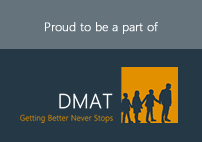RE
Intent
At The Laurels Primary School, we believe that a well-rounded Religious Education (RE) curriculum enables children to develop a deep knowledge and understanding of a range of religions and worldviews, as well as the values and principles that shape them. We have carefully designed our RE curriculum so that children build this knowledge as they progress through the school.
We recognise that religion and belief play an important role in society and in shaping cultures and communities. Through the study of RE, we aim to inspire curiosity, promote respect and foster critical thinking, reflection and discussion. Our RE curriculum encourages children to explore big questions, develop empathy and appreciate diversity, nurturing a lifelong interest in faith, belief and values.
We ensure children build a secure understanding of key concepts such as belief, belonging, worship, morality and identity while deepening their awareness of similarities and differences between faiths and worldviews. Pupils learn to interpret a range of sources, consider different perspectives and reflect on their own views and experiences. Our curriculum is designed to be inclusive and ambitious for all learners, enabling every child to know more, remember more and understand more about religion, belief and the impact these have on individuals, communities and the wider world.
Implementation
RE is taught each term, providing children with regular opportunities to learn about and from a wide range of faiths and worldviews. This ensures that pupils gain a broad and balanced understanding of religion and belief, while also developing respect, tolerance and curiosity about the diverse communities within our school, local area and wider world. Our RE curriculum is statutory and sits alongside the National Curriculum and is delivered in line with the West Sussex Agreed Syllabus and supports our wider ethos of preparing children to engage thoughtfully in modern life.
Each unit is thoughtfully planned using our subject Knowledge Organisers, which outline the key knowledge, skills and vocabulary children need to acquire. These organisers ensure progression within and across year groups, supporting the development of religious literacy over time. Vocabulary is explicitly taught, reinforced and applied so that children can confidently discuss beliefs, practices, traditions and values.
Retrieval practice is embedded throughout lessons to strengthen long-term memory and allow teachers to adapt planning based on what pupils know and remember. Lessons balance substantive knowledge (about religions and beliefs) with disciplinary skills such as enquiry, interpretation, reflection and evaluation, with clearly defined endpoints that guide the learning journey and inform assessment.
To deepen understanding and build cultural capital, we enrich our curriculum through visits to places of worship, opportunities to meet with faith representatives and themed events which bring RE learning to life. Religious awareness assemblies further embed understanding of festivals, traditions and values, while encouraging children to reflect on their own beliefs and those of others. It is inextricably linked with SMSC (Spiritual, Moral, Social and Cultural) and British Values education. Through this approach, children develop empathy, critical thinking and the ability to engage respectfully as informed, reflective citizens in an increasingly diverse society.
RE is compulsory for all children, except for children withdrawn at the request of their parents (The Education Act 2002, section 80).
Impact
Through the careful intent and implementation of RE throughout the school, we expect children to:
- Know more, remember more and understand more about different religions, worldviews and the values they promote
- Develop a lifelong interest in RE and a deep respect for people, faiths and cultures that shape the world
- Ask thoughtful questions, reflect on meaning and consider different perspectives with empathy and respect
- Make meaningful connections between beliefs, values and their own lives and experiences
- Use lessons from RE to inform the choices they make and the way they contribute to their communities
- Leave with a strong sense of curiosity, reflection and open-mindedness
- Be prepared to engage as informed, respectful and responsible citizens in an increasingly diverse and interconnected world



